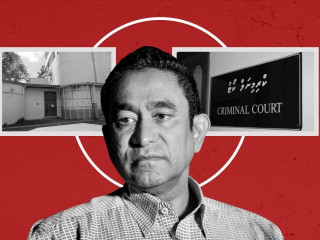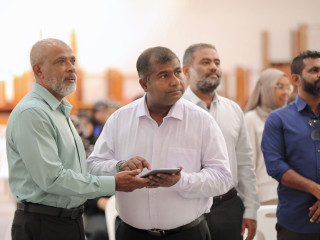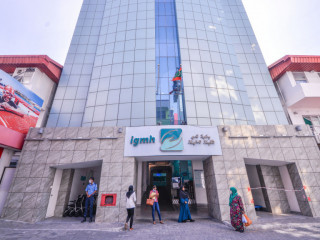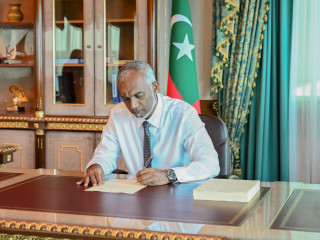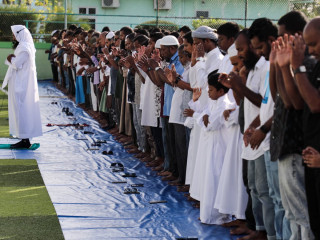Maldives’ ruling government coalition showed signs of strife shortly after they together won the presidential elections in 2018. Political ideologies and motivations were bound to clash; a rift between parties in the coalition had always been predicted.
Jumhooree Party (JP) leader Qasim Ibrahim earlier this month announced his party’s decision to stay with the coalition, but to work with the ‘Progressive Coalition’, the union between former ruling Progressive Party of Maldives and the newly established People’s National Congress, two parties still loyal to former president Abdulla Yameen, whom Qasim previously took a strong stance against.
Much to his own dismay, cabinet ministers aligned with the party, the party’s president, and council members have criticised the decision to collude with the ‘enemy’. His response? Qasim has asked Tourism Minister Ali Waheed, his party’s president, to resign from both the cabinet and his post in the party, if he cannot toe the party line.
Qasim has had some support from those who believe his decision will maintain stability in the country, as isolation of the ‘Progressive Coalition’ could mean further political unrest. Qasim’s discontent with his coalition partners stem from the Maldivian Democratic Party’s (MDP) decision to contest for all but one of 87 seats in the upcoming parliamentary election.
This, according to him, is in violation of a contract dividing parliamentary seats among four parties in the coalition; 40 percent for MDP, 25 percent for JP, 30 for Maumoon Reform Movement, and 15 for Adhaalath Party. MDP denies that such an agreement exists and after members of other parties in the coalition began referring to said agreement, they conceded that it was proposed and signed by MDP, but ‘not by all parties, and is unenforceable’.
At a rally this week, MDP leader Mohamed Nasheed defended his party’s position by saying that dividing constituencies among parties in the coalition could have infringed on the rights of constituents. Qasim though accuses MDP of casting JP ‘aside’ and has expressed his willingness to work with parties outside the coalition, in the upcoming election.
The issue at hand seems to be an internal matter, and one of politicians being politicians. Much has been said in local political spheres about how coalitions are bound to fail and how they have ‘never worked’, and the question of ‘how long will it last?’ persisted all through out 2017 when the coalition was formed, and through 2018 when they fielded and supported a common candidate, and now in 2019.
However, the rift has had far-reaching consequences. Multiple legislations put forth by the government has been filibustered and stalled in parliament, chief among them is a bill to empower two inquiry commissions set up by the President’s Office to fulfil pledges that both MDP and JP had vehemently rallied behind before the 2018 elections.
Qasim and JP members who support him have expressed their take on the bill; that it delegates powers already vested in independent institutions to the commissions, which makes empowering the commissions both unnecessary and unconstitutional.
It is not disagreement that is troubling, but the clear refusal of both Qasim and his coalition partners to resolve their differences, despite four of the coalition leaders being among the most seasoned living politicians and public officials in the country.
Moreover, MDP has proposed over 16 bills pertaining to matters in the coalition’s manifesto, which the party has refused to submit until after the People’s Majlis election in April. The coalition bloc currently in the Majlis gives them majority, yet the bills are delayed due to stated distrust.
A sandbox row between leaders is likely not what voters wanted when they elected President Ibrahim Solih, nor for his legislations and his decisions to be stalled. Ideological and political differences aside, the government must recognise its overarching responsibility to the people, and ensure efficient function, even if it means dictating rules to parties in the coalition.


